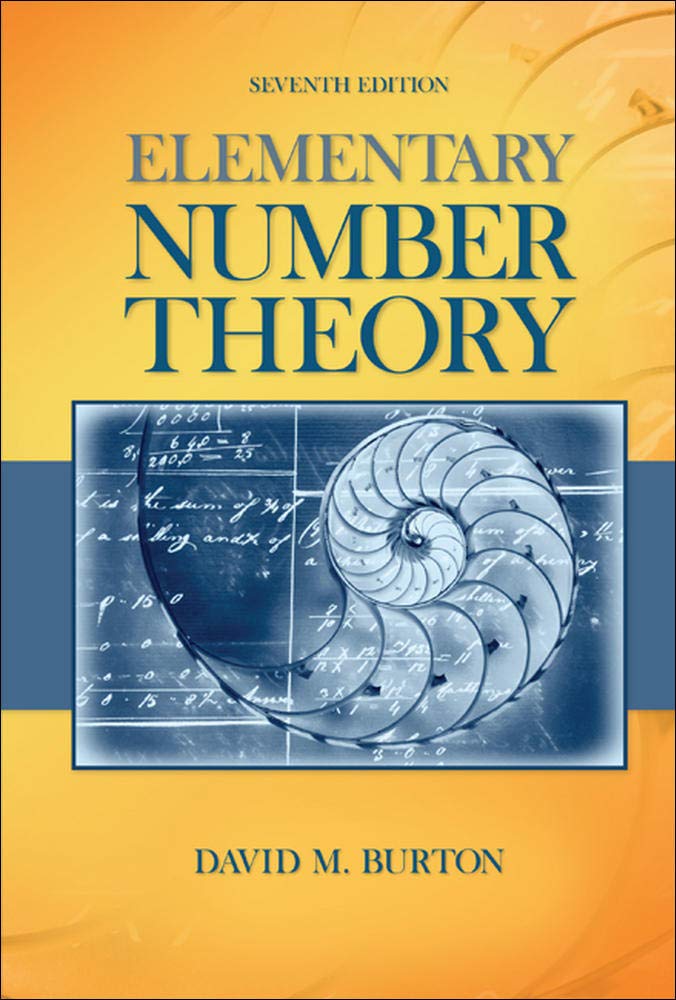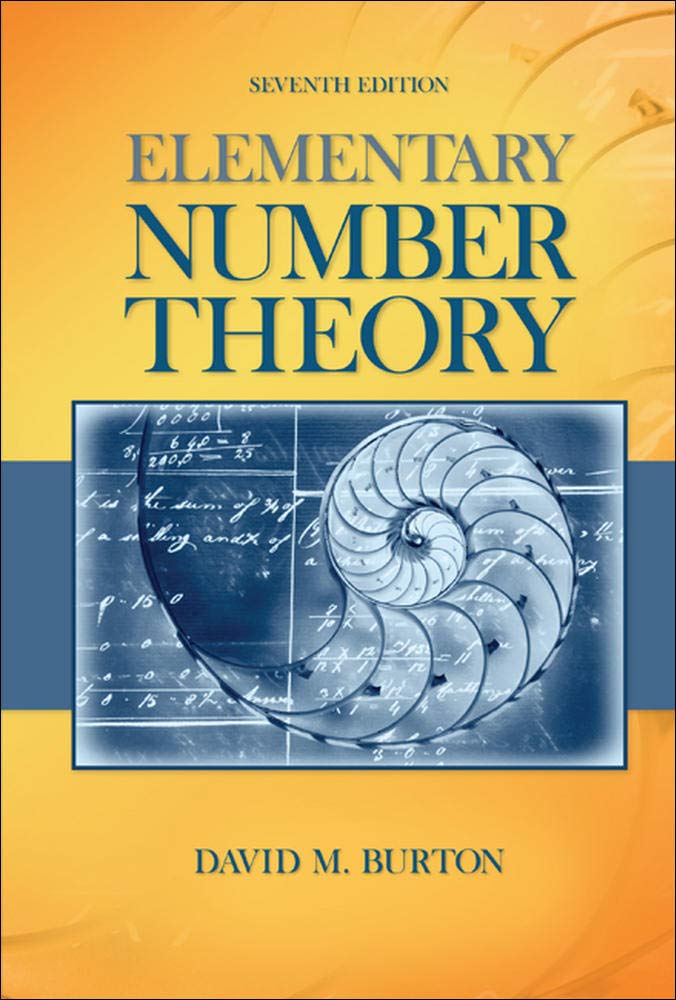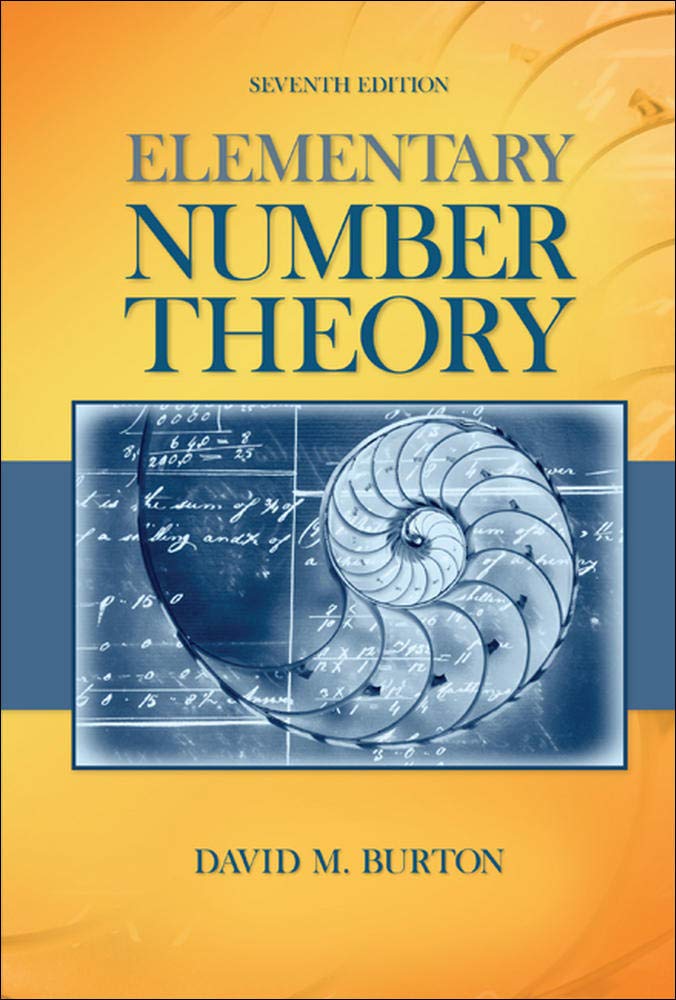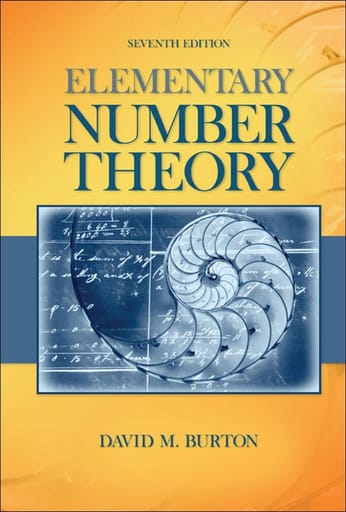Math

Elementary Number Theory Problems 3.3 Solution (David M. Burton's 7th Edition) - Q7 Paid Members Public
My Solution for "A conjecture of Lagrange ($1775$) asserts that every odd integer greater than $5$ can be written as a sum $p_{1} + 2p_{2}$, where $p_{1}$, $p_{2}$ are both primes. Confirm this for all odd integers through $75$."

Elementary Number Theory Problems 3.3 Solution (David M. Burton's 7th Edition) - Q6 Paid Members Public
My Solution for "Prove that the Goldbach conjecture that every even integer greater than $2$ is the sum of two primes is equivalent to the statement that every integer greater than $5$ is the sum of three primes."

Elementary Number Theory Problems 3.3 Solution (David M. Burton's 7th Edition) - Q5 Paid Members Public
My Solution for "In 1752, Goldbach submitted the following conjecture to Euler: Every odd integer can be written in the form $p + 2a^2$, where $p$ is either a prime or $1$ and $a \geq 0$. Show that the integer $5777$ refutes this conjecture."

Elementary Number Theory Problems 3.3 Solution (David M. Burton's 7th Edition) - Q4 Paid Members Public
My Solution for "Sylvester ($1896$) rephrased the Goldbach conjecture: Every even integer $2n$ greater than $4$ is the sum of two primes, one larger than $n/2$ and the other less than $3n/2$. Verify this version of the conjecture for all even integers between $6$ and $76$."

Elementary Number Theory Problems 3.3 Solution (David M. Burton's 7th Edition) - Q3 Paid Members Public
Find all pairs of primes $p$ and $q$ satisfying $p - q = 3$.

Elementary Number Theory Problems 3.3 Solution (David M. Burton's 7th Edition) - Q2 Paid Members Public
(a) If $1$ is added to a product of twin primes, prove that a perfect square is always obtained. (b) Show that the sum of twin primes $p$ and $p + 2$ is divisible by $12$, provided that $p > 3$.

Elementary Number Theory Problems 3.3 Solution (David M. Burton's 7th Edition) - Q1 Paid Members Public
My Solution for "Verify that the integers $1949$ and $1951$ are twin primes."

Elementary Number Theory Problems 3.2 Solution (David M. Burton's 7th Edition) Paid Members Public
My solutions for Burton's Elementary Number Theory Problems 3.2 (7th Edition)




